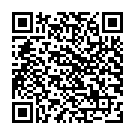|
|
|
| Module code: DFMEES-213 |
|
|
2CM (2 hours) |
|
3 |
| Semester: 2 |
| Mandatory course: yes |
Language of instruction:
German |
Assessment:
Written and oral examination
[updated 30.06.2025]
|
DFMEES-213 (P610-0147) Electrical Engineering - Renewable Energy and System Technology, Master, ASPO 01.10.2019
, semester 2, mandatory course, technical
E2830 (P211-0301) Electrical Engineering and Information Technology, Master, ASPO 01.04.2019
, optional course, technical, course inactive since 30.09.2022
MAM.2.1.2.8 (P211-0269, P241-0322, P610-0100) Engineering and Management, Master, ASPO 01.10.2013
, semester 2, optional course
MST.ZFP Mechatronics and Sensor Technology, Master, ASPO 01.04.2016
, semester 2, optional course, course inactive since 01.10.2012
MST.ZFP Mechatronics and Sensor Technology, Master, ASPO 01.10.2011
, semester 2, optional course, course inactive since 01.10.2012
|
|
The total student study time for this course is 90 hours.
|
Recommended prerequisites (modules):
None.
|
Recommended as prerequisite for:
|
Module coordinator:
Prof. Dr.-Ing. Bernd Valeske |
Lecturer: Prof. Dr.-Ing. Bernd Valeske
[updated 25.10.2020]
|
Learning outcomes:
After successfully completing this module, students will be familiar with concepts for QA, maintenance, and repair in transportation technology and be able to explain the contribution of modern NDT methods; they will be familiar with and be able to explain the objectives of production testing in comparison to service inspections.
- Students will understand the theory behind the function, equipment technology, and application of modern NDT methods for testing in the field of lightweight and mixed construction.
- They will be familiar with, and be able to explain and select automation solutions based on robotics modules in NDT.
- They will be familiar with testing tasks in typical fields of application in transportation and production engineering and be able to select and assign suitable automated solutions using NDT.
[updated 30.06.2025]
|
Module content:
- Introduction: New materials and testing tasks in transportation engineering (lightweight and mixed construction) and new, innovative NDT methods developed for this purpose; automated NDT in series production (100% testing)
- Overview of design, maintenance, and repair concepts in transportation technology (automotive, rail, aviation)
- Innovative NDT methods and their areas of application:
- 3MA for determining the mechanical and technological properties of high-strength steels
- Active high-performance pulse video thermography for fiber-reinforced plastics and joints
- Phased array ultrasonic testing and signal enhancement using reconstruction methods for imaging NDT (application examples)
- Air-coupled ultrasound for ceramic and polymer materials
- NMR overlay technology for polymer materials and adhesive bonds
- Shearography for CFRP and sandwich components
- Acoustic resonance analysis and 3D laser vibrometry for rapid series testing
- Dimensional measurement and 3D CAD generation using 3D laser scanners, application for computer-aided testing (CAT, virtual test planning)
- Automation in NDT: robotics, control technology/PLC, software- and computer-assisted NDT data acquisition and evaluation
- Application of multi-axis linear robots and 6-axis articulated arm robots for NDT on complex components (small and large series testing)
- NDT applications:
Case studies from aviation, rail, automotive fields
- Internship at the IZFP: (1) 3D laser scanner for CAD (cast and forged components),
(2) Sound testing and 3D laser vibrometry (series production automotive component), (3) Shearography on CFRP sandwich component (aviation),
(4) Programming 6-axis robots for NDT (ICE wheels)
[updated 30.06.2025]
|
Teaching methods/Media:
Interactive lecture with exam and practical exercises as well as project work, supervised lab exercises in small groups with quizzes, accompanying/supervised project work followed by an oral exam,
transparencies with animations, schematic and real images.
[updated 30.06.2025]
|
Recommended or required reading:
ASNT: Nondestructive Testing Handbook;
ASM Handbook – Vo.21: Composites
[updated 30.06.2025]
|

